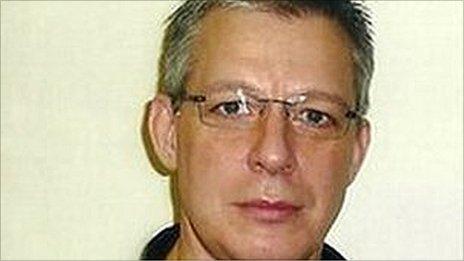Jeremy Bamber bid for evidence dismissed by High Court
- Published
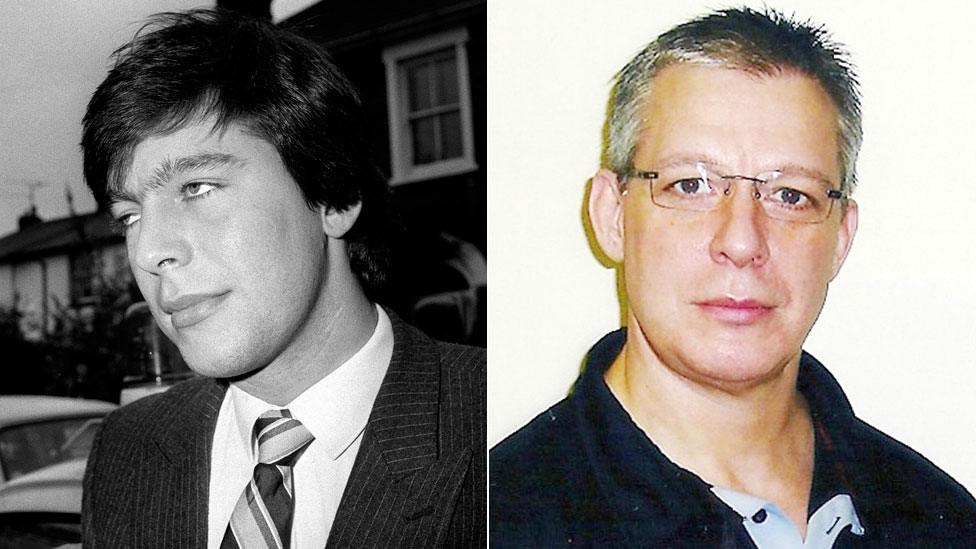
Jeremy Bamber in 1985 and in a later, undated photograph
Murderer Jeremy Bamber's bid to secure evidence he claimed could clear him has been dismissed by the High Court.
Bamber, 59, is serving life in prison for killing five members of his family at White House Farm, Essex, in 1985.
His lawyers said they were "almost certain" of a silencer which had not been disclosed by the prosecution.
Mr Justice Julian Knowles said he did not accept the existence of evidence was capable of affecting Bamber's convictions "in any meaningful way".
A silencer which contained Bamber's sister Sheila Cafell's blood played a pivotal role in his 1986 trial.
'Sensitive case documents'
Prosecutors argued that with it attached to the gun she could not have reached the trigger to take her own life after shooting her family, as Bamber argued in his defence.
He was found guilty of murdering his adoptive parents Nevill and June, both 61, Ms Caffell, 26, and her six-year-old twins Daniel and Nicholas.
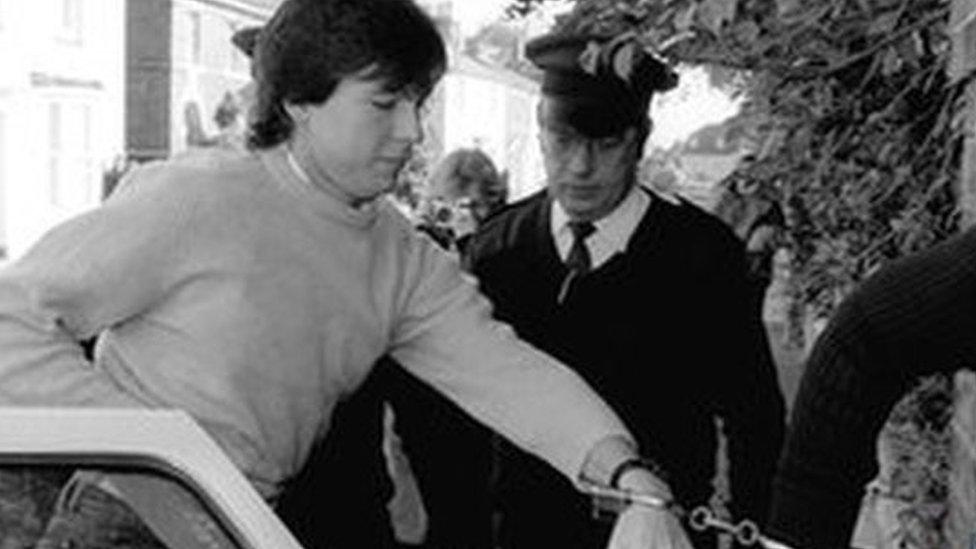
Bamber has battle against his conviction for more than 30 years
His lawyers claimed the Crown Prosecution Service did not disclose evidence of a second silencer which was said to have been found at the farm.
Joe Stone QC, representing Bamber, told the High Court "it now seems almost certain that there is a second sound moderator" - evidence he suggested could "significantly undermine the prosecution case".
The court also heard that Carol Ann Lee - author of a book on which a recent ITV drama about the killings, White House Farm, was based - had been given "a number of sensitive case documents" by the original investigating officer, Det Supt Michael Ainsley, who is said to have later destroyed the items at his home.
Mr Stone argued his client would be "significantly handicapped" in mounting a fresh bid to overturn his conviction through the Criminal Cases Review Commission (CCRC), the independent body which investigates possible miscarriages of justice, without the evidence he sought.
The judge ruled: "I am unable to say that the CPS erred in law in refusing to make the disclosure sought.
"The facts are that the moderator which was found had Ms Caffell's blood in it, and she could not have shot herself when the sound moderator was attached to the rifle."
Bamber previously had an appeal against his convictions dismissed by the Court of Appeal in 2002, and also had a High Court challenge to the CCRC's refusal to refer his case for another appeal rejected in 2012.
- Published29 May 2020
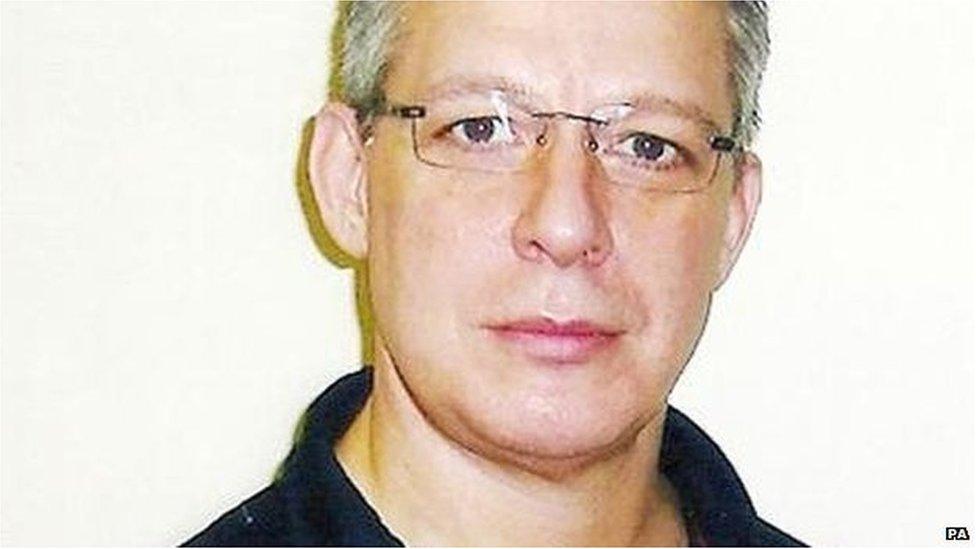
- Published8 January 2020
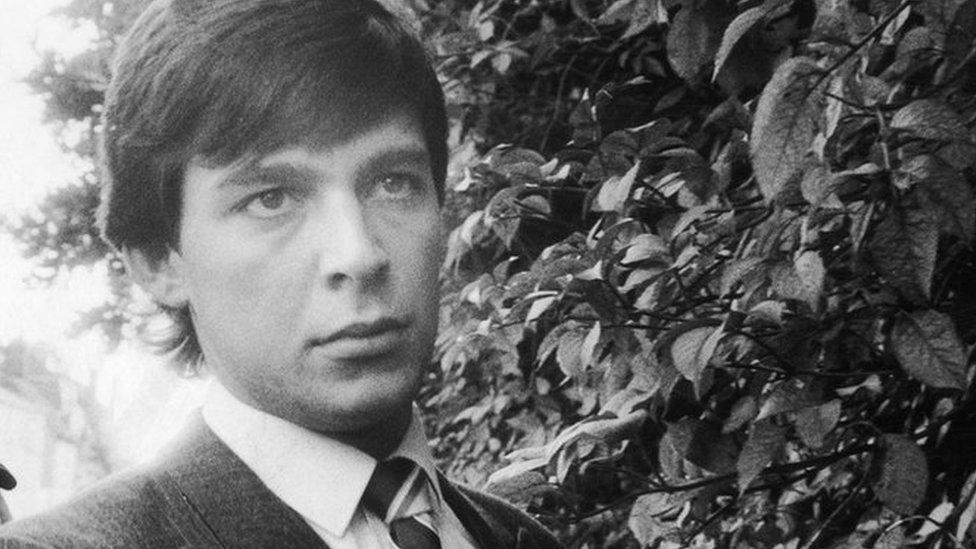
- Published9 January 2020
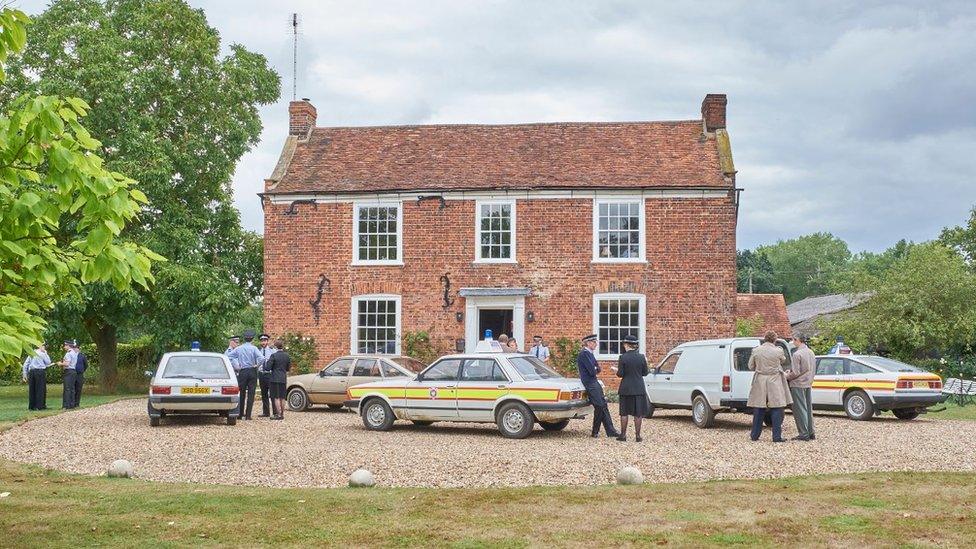
- Published8 January 2020
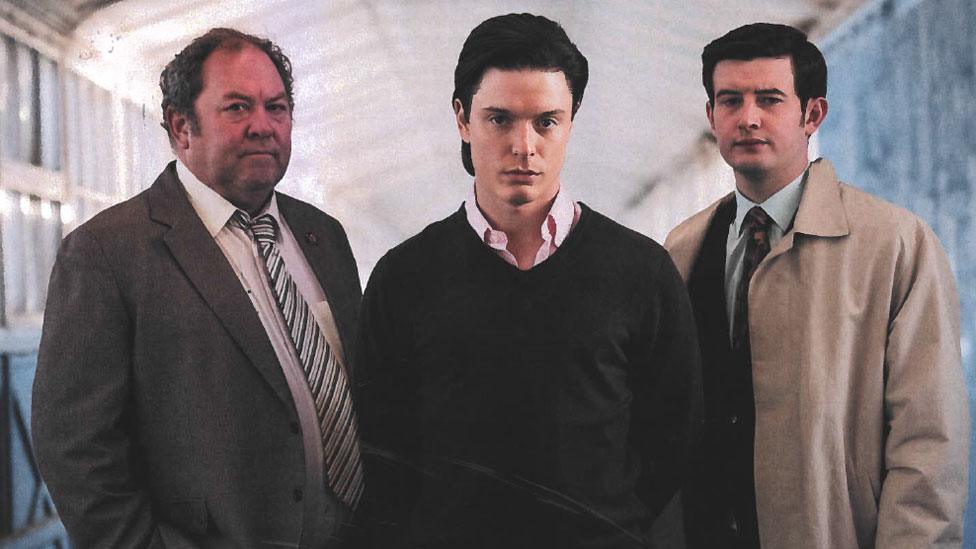
- Published15 August 2015
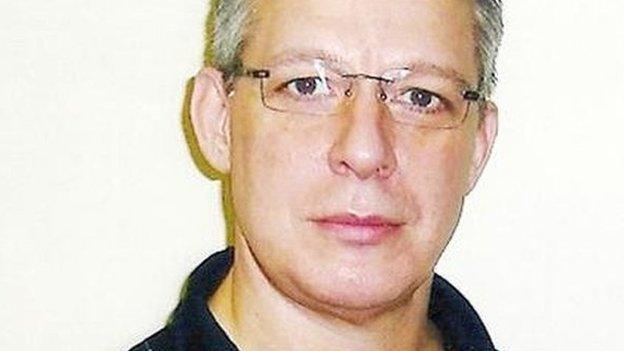
- Published15 July 2015
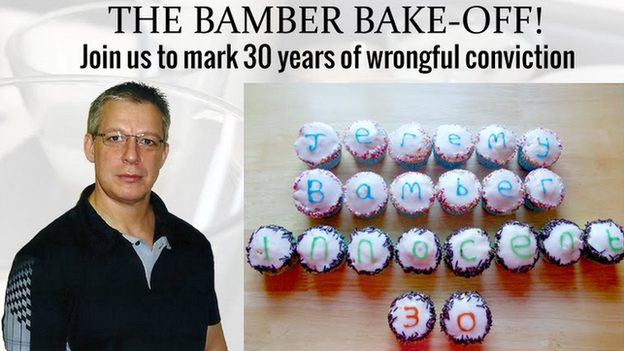
- Published29 November 2012
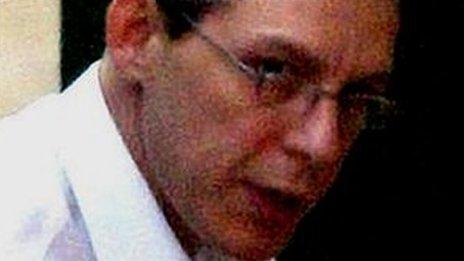
- Published16 January 2012
- Published26 September 2011
